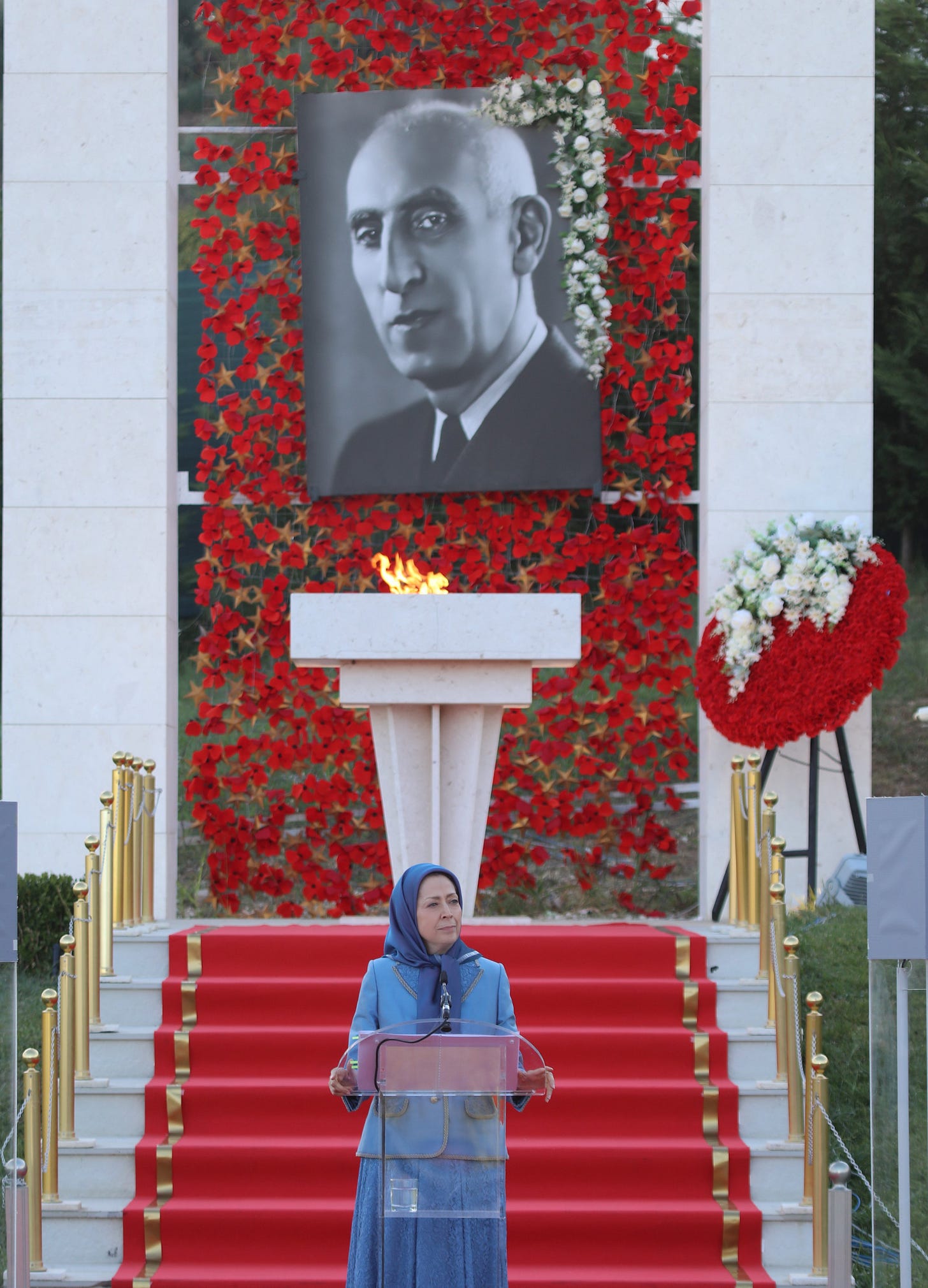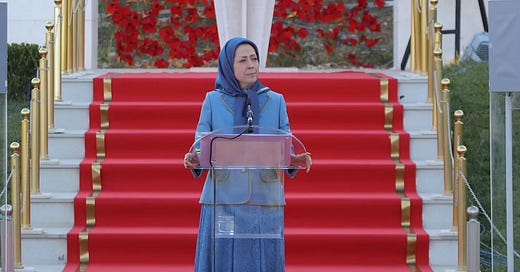Following the Money and Demanding Accountability: The MEK, Washington, and the Trump-Vance Transparency Agenda
Accountability Needed for Death of Americans and Current US nationals and others who have been held hostage by the Islamic Regime of Iran

The presence of the Mujahedin-e Khalq (MEK) through its affiliated U.S. groups at CPAC this year underscores the extent to which foreign-linked groups have infiltrated Washington’s political establishment. The fact that a group with a documented history of allegedly targeting American military personnel and diplomats has managed to embed itself in high-profile conservative circles is alarming. It highlights the broader issue of unchecked foreign influence that has shaped and, at times, distorted U.S. foreign policy.
The Trump-Vance administration has embarked on a critical recalibration of America’s engagement with foreign actors. The Department of Government Efficiency (DOGE), alongside ongoing congressional efforts, aims to modernize federal operations and increase transparency, creating a unique opportunity to investigate and address foreign influence. Given its history and current activities, the MEK must be a focal point of this review, alongside other organizations that have engaged in U.S. policymaking under the guise of advocacy. While some of this information remains classified, transparency is imperative.
The MEK and its affiliated organizations—such as the National Council of Resistance of Iran (NCRI) and the Organization of Iranian American Communities (OIAC)—have invested heavily in lobbying efforts to sanitize their image in Washington. Despite their past association with the assassination of U.S. officials, their support for the 1979 hostage crisis, and their alliance with Saddam Hussein during the Iran-Iraq War (a particularly contentious issue given Hussein’s use of chemical weapons), the MEK has over decades rebranded itself as a pro-democracy force.
Their strategy involves recruiting well-connected former U.S. officials, organizing extravagant political events in Washington, D.C., and Europe, and positioning themselves as a viable alternative to Iran’s ruling regime. However, their ability to sustain these activities raises crucial financial questions, such as who funds their compound in Albania and other operational hubs?
What portion of their U.S.-based lobbying efforts is financed by foreign sources? MEK representatives claim their American supporters provide financial backing under federal lobbying laws. However, given that their leadership operates from abroad, their influence should still be categorized as foreign and subject to full disclosure. Has the U.S. government ever directly or indirectly funded the MEK? If so, how much and under what circumstances? Who is compensating former U.S. officials—from both parties—to endorse the MEK, speak at their rallies, and advocate for their cause in Congress?
A recent article in the Jerusalem Post highlighted the MEK’s presence at CPAC and reaffirmed longstanding concerns about their influence operations. The group’s ability to operate across ideological lines is not rooted in grassroots support but rather in a well-financed strategy to purchase legitimacy. While their activities may be technically legal, they raise profound ethical and national security concerns.
For decades, the MEK has avoided providing a definitive answer regarding its involvement in attacks on Americans. Having engaged directly with organization members over the years, I have never received a clear response to these concerns. A yes or no answer? Never. Their standard defense is to dismiss these allegations as Islamic regime propaganda or fabrications from rival opposition factions, particularly Iranian royalists. However, documented evidence from intelligence reports and State Department assessments tells a different story.
If the MEK intends to continue operating in the U.S., it must provide full transparency regarding its historical actions and be willing to hand over any relevant information and individuals responsible for crimes against Americans. Until such accountability is achieved, their access to Congress and political events such as CPAC should be revoked. Notably, CPAC is not their only entry point—they have also been present at Republican National Conventions and other key political gatherings. Other non-profits in Washington, DC, and New York, including think tanks, use them as a political cat’s paw for fundraising and political reasons.
The DOGE process represents a powerful tool in the Trump-Vance administration’s efforts to dismantle hidden foreign influence in U.S. policymaking. While initially designed to enhance government efficiency, DOGE’s capacity to access agency records and mandate transparency should be expanded to investigate foreign lobbying networks. This means, among other things:
Examining the MEK’s financial sources and influence network.
Investigating any past U.S. government financial support for the MEK, whether direct or indirect.
Mandating full disclosure from former U.S. officials who have received payments from the MEK or its affiliates. These disclosures should be publicized on State Department or Department of Justice websites. Additionally, Congress members and staff attending MEK-sponsored events should be required to disclose these engagements on their office websites.
Ensuring compliance with U.S. lobbying laws by foreign-linked advocacy organizations.
Were any USAID or State Department foreign aid or democracy-building programs ever used to directly or indirectly support the MEK and its affiliates?
A complete review should include ALL groups attempting to reshape or influence U.S. policy on Iran, not just the MEK or its affiliates.
The MEK is not the only foreign-linked and likely foreign-funded entity distorting U.S. foreign policy and diverting attention from critical issues such as securing the release of American hostages in Iran.
Across the Western Hemisphere and beyond, other exile groups, foreign-backed organizations, and corporate interests have used financial leverage to manipulate U.S. policymakers. This includes Cuban, Venezuelan, Nicaraguan, and Chinese-affiliated entities operating under the guise of think tanks, business groups, and human rights organizations. Congress must reclaim its oversight responsibilities by:
Investigating how foreign entities exploit lobbying loopholes to access policymakers.
Assessing the role of think tanks and NGOs in amplifying foreign influence.
Addressing how financial incentives and political leverage have diverted U.S. foreign policy priorities, particularly when it comes to issues such as securing the release of Americans held hostage abroad. I know about this firsthand since U.S. support for the MEK has been a problem in several cases I have worked on.
It is 2025, not the 1990s. The United States must recalibrate its engagement with foreign political movements to align with national interests, not the interests of organizations seeking to buy influence in Washington. Until the following conditions are met, the MEK’s presence in Congress, CPAC, and high-level government discussions should be discouraged:
Full financial transparency – Who funds them, and where does the money go?
Accountability for past actions against Americans – The organization must address and take responsibility for its history.
Reevaluation of their role in U.S. foreign policy: If their primary function is to divert attention from pressing national security concerns, such as the release of Americans held hostage in Iran, their influence should be curtailed.
The Trump-Vance administration has committed to reshaping how America deals with foreign influence. Congress must now take decisive action to ensure that groups like the MEK and others with similar histories can no longer manipulate U.S. foreign policy to the detriment of American interests. The first step is simple: follow the money and turn over all information about the death of Americans, starting with a yes or no answer.



